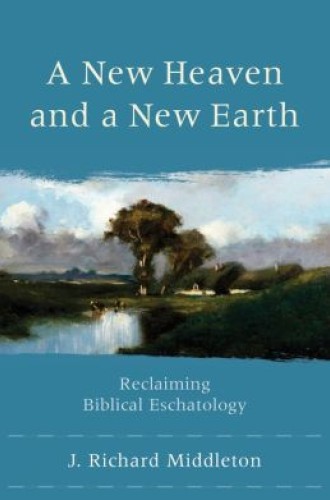A New Heaven and a New Earth, by J. Richard Middleton
In these days when moviegoers, gamers, and television watchers demonstrate a strong taste for postapocalyptic settings, we need and long for a strong current of theological explication of Christian eschatology. J. Richard Middleton has stepped forward with a thoughtful, thorough, and well-written book on biblical eschatology—although he doesn’t mention zombies. Instead of responding to the entertainment industry, Middleton’s message concerns, secondarily, Christians’ fixation on the rapture and, primarily, virtually all of Christian preaching and teaching that eviscerates the richness of the Bible’s eschatology, offering nothing more than the chance to go to heaven after we die and this world has ended.
Middleton eloquently lifts up what is entirely plain if you pay attention: “the Bible consistently anticipates the redemption of the entire created order.” Guiding us on a dazzling tour through the broad range of relevant texts, he makes clear the Bible’s emphasis on the material order—on culture, bodies, and buildings—and shows that the Creator’s purpose isn’t for creation to be swept away, but for it to be entirely redeemed. This he dubs “the Bible’s best-kept secret.”
Of course, something so obvious can’t be a real secret. I found myself wishing Middleton would assess why theologians throughout many centuries have read eschatological texts so selectively and have failed to foster a common hope in the redemption of creation and our bodies. If anything, Middleton seems to chalk up this narrow emphasis on spiritual heavenly bliss to banal thinking or some stubborn thinness of spirituality.





